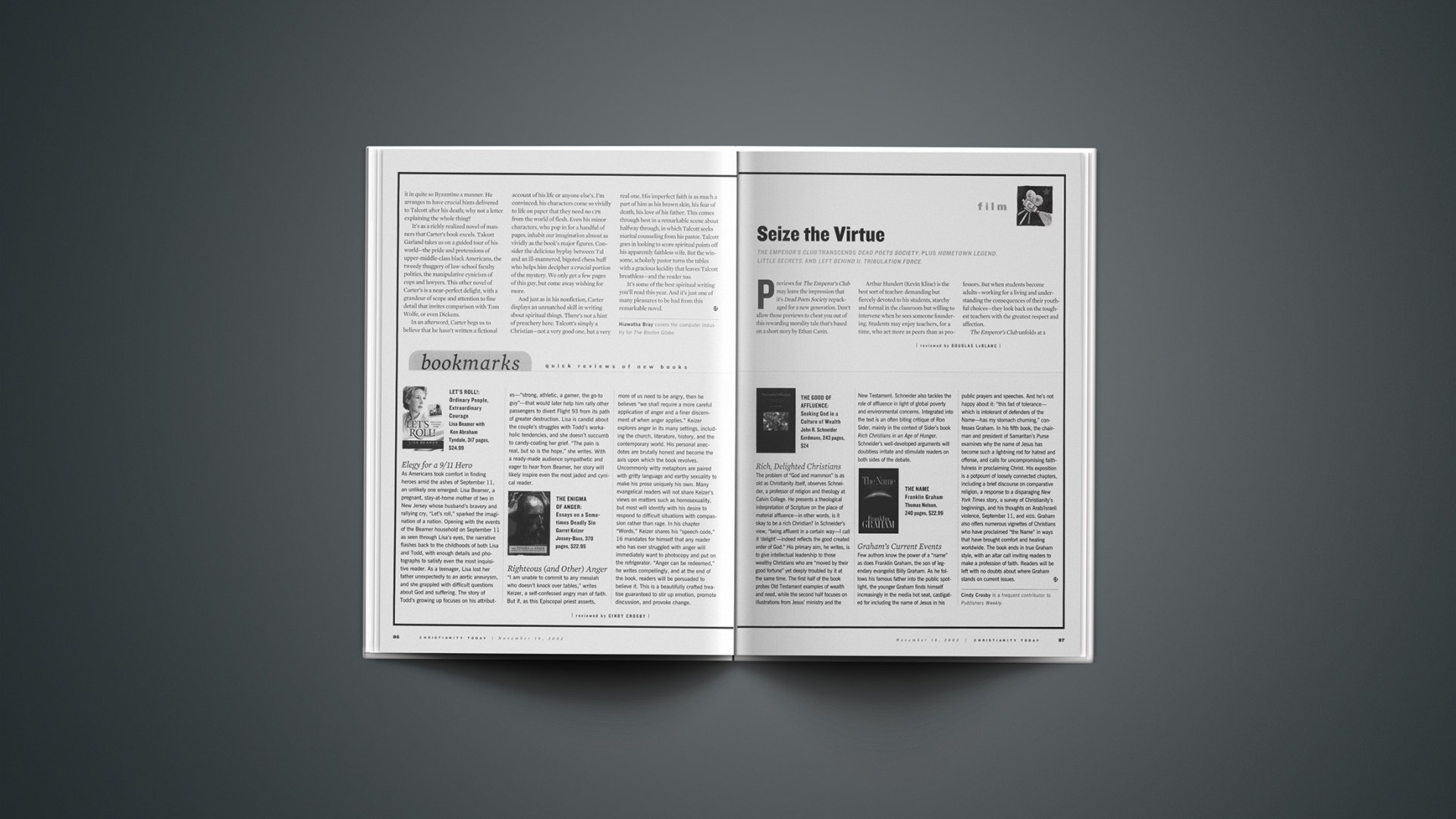Previews for The Emperor’s Club may leave the impression that it’s Dead Poets Society repackaged for a new generation. Don’t allow those previews to cheat you out of this rewarding morality tale that’s based on a short story by Ethan Canin.
Arthur Hundert (Kevin Kline) is the best sort of teacher: demanding but fiercely devoted to his students, starchy and formal in the classroom but willing to intervene when he sees someone foundering. Students may enjoy teachers, for a time, who act more as peers than as professors. But when students become adults—working for a living and understanding the consequences of their youthful choices—they look back on the toughest teachers with the greatest respect and affection.
The Emperor’s Club unfolds at a leisurely pace, which is a peculiar touch in a film about the highly competitive world of New England prep schools. Mr. Hundert encourages Sedgewick Bell (Joel Gretsch), the unruly and neglected son of a senator (Harris Yulin), to strive for something more than being the class clown. Hundert’s efforts seem to work, but in time he faces an ethical dilemma that will echo through decades.
Despite its privileged setting, The Emperor’s Club tells a story of character and virtue that crosses class lines. Kline’s performance is understated and disciplined, offering the right measure of regrets and self-doubts. His students, while representing an almost predictable cross-section of young American men, ultimately represent the different ways of negotiating not only school but also the rest of life.
Michael Apted’s documentary series, which began with 7 Up and followed British students into their early 40s, has shown just how much our childhood portends what our adulthood will be like. The Emperor’s Club achieves the same effect through its storytelling.
Douglas LeBlanc edits The CT Review.
Copyright © 2002 Christianity Today. Click for reprint information.
Related Elsewhere
The official site for The Emperor’s Club has information on the story, a “Mr. Julius Caesar” quiz, and a trailer.










